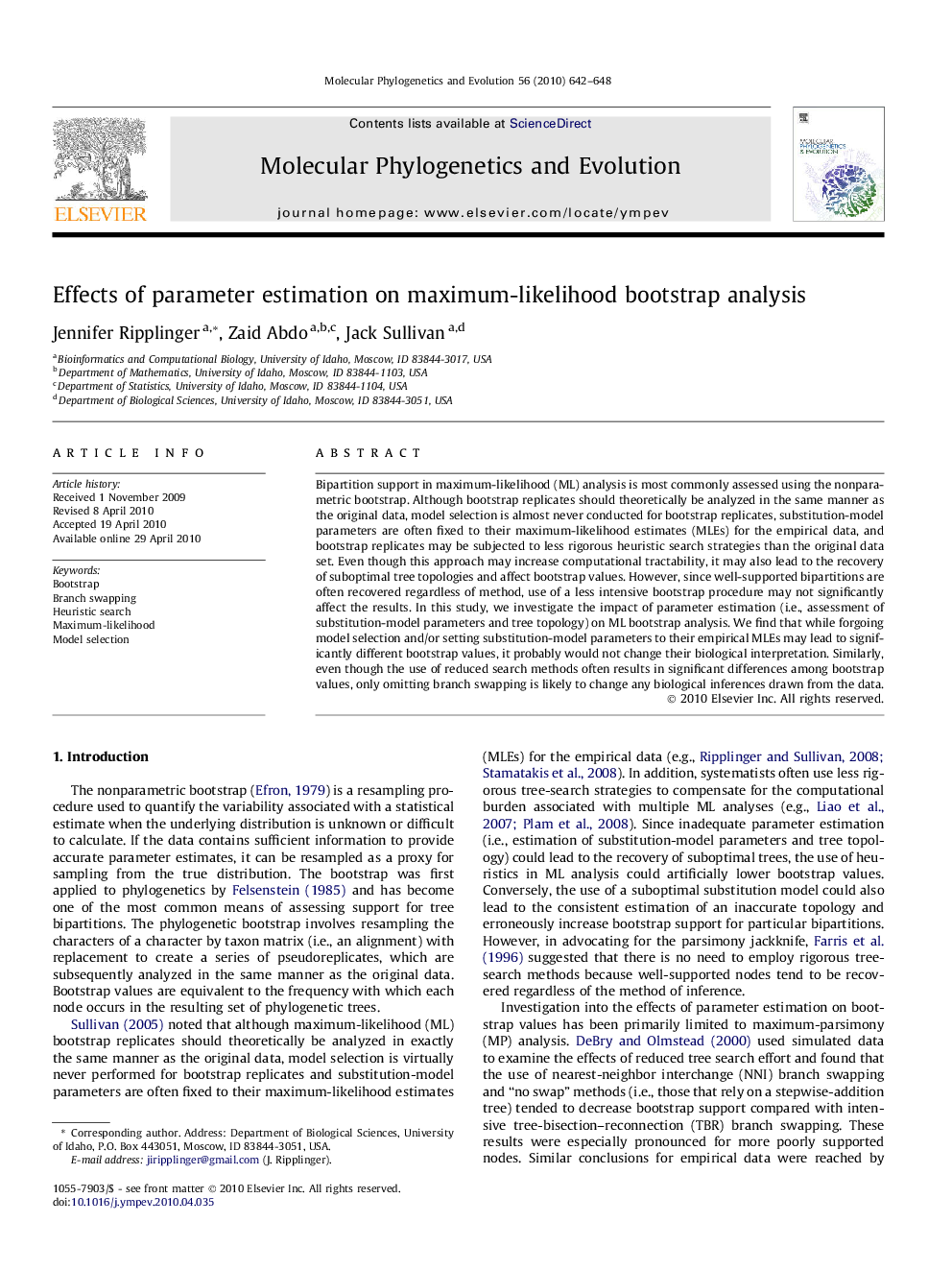| Article ID | Journal | Published Year | Pages | File Type |
|---|---|---|---|---|
| 2834513 | Molecular Phylogenetics and Evolution | 2010 | 7 Pages |
Bipartition support in maximum-likelihood (ML) analysis is most commonly assessed using the nonparametric bootstrap. Although bootstrap replicates should theoretically be analyzed in the same manner as the original data, model selection is almost never conducted for bootstrap replicates, substitution-model parameters are often fixed to their maximum-likelihood estimates (MLEs) for the empirical data, and bootstrap replicates may be subjected to less rigorous heuristic search strategies than the original data set. Even though this approach may increase computational tractability, it may also lead to the recovery of suboptimal tree topologies and affect bootstrap values. However, since well-supported bipartitions are often recovered regardless of method, use of a less intensive bootstrap procedure may not significantly affect the results. In this study, we investigate the impact of parameter estimation (i.e., assessment of substitution-model parameters and tree topology) on ML bootstrap analysis. We find that while forgoing model selection and/or setting substitution-model parameters to their empirical MLEs may lead to significantly different bootstrap values, it probably would not change their biological interpretation. Similarly, even though the use of reduced search methods often results in significant differences among bootstrap values, only omitting branch swapping is likely to change any biological inferences drawn from the data.
